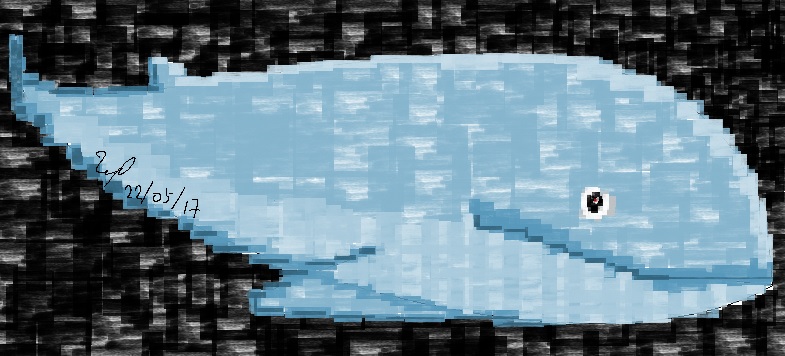A bit about myself
Since kindergarten, people often complimented me on my academic excellence. A fast learner I was. In class, I was always among the first ones who could grasp a new theory or concept regardless of the subject that I was in. I performed almost equally well in Geography, Economics and Physics, the three electives that I chose in the senior years of secondary school. A fast learner? Could be. Being a fantastic copycat (one that copies without ringing the plagiarism alarm on Turnitin) also in part helped with everything, but that’s a story for another day. But one of my greatest strengths in life is actually not learning, but figuring out the meaning behind everything.
Use the academic setting as an example. I learnt the concepts faster than most other students of course. But I did not stop from there. After knowing what opportunity cost, the first introduced Economics concept in the textbook, was, I started questioning its placement in the textbook. Why did the authors put opportunity cost as the first chapter of the textbook? What was the meaning of this placement? This might seem like an irrelevant question but it actually helped me figure out the entire layout of the textbook and why the topics fell in that particular order. It made me learn even faster in the later chapters. Knowing the meaning of that textbook was like finishing the outer frame of a 3000-piece puzzle – you know the rest is only a matter of time.
Likewise I have achieved many other things by spending only half the time. When I was four I learnt to build tents soon as I figured out the meaning (i.e., role) of poles in the tent. When I was learning how to swim at the age of 8 I would ask myself why they had designed the kicks of freestyle the way it was, and when I finally figured out why it helped me land into the school swimming team. When I was 15 I learnt the meaning of Excel formulas in the IT lesson. Why did they construct the coding grammar like that? Back then it actually took me a lot longer to learn Excel than my classmates who didn’t bother to further explore, but once I had it figured out I never had to pay attention in another Excel, R (a statistical computing programme) or html class in University ever again. Again, once I had the outer frame ready, I no longer had to hassle my way to the inner pieces.
The meaning of life
But one thing that I cannot seem to figure the meaning out of, is meaning. To be specific, it’s the meaning of life itself. I have always tried to figure out the meaning of life, but again and again I would find myself looping in my thoughts that led to nowhere. That was until I started watching Rick and Morty. This show introduced me to the concept of nihilism, and since then I could not stop thinking about it – which again goes to show how much of our thoughts is aerated in free will and how much is just falsely diffused into this air chamber constrained by our own physical and mental (including this very English language that I am writing in right now) limitations. The more I try to find a meaning to life, the more I am churning myself into nihilism.
The rejection of all religious and moral principles, in the belief that life is meaningless — Oxford Dictionaries
Nihilism basically means the belief that life is meaningless. In the Oxford Dictionaries they added that nihilism also rejects all religious and moral principles, which I fail to disagree despite not finding it entirely relevant.
I mean, it depends on which level you are looking over life. If you focus on the meaning of your own life, it is not too difficult to find a meaning to it. The meaning of your life could be to make a family – who continues your bloodline and will. Or to make a lot of money – which you ultimately bequeath to the living. Or to philanthropically change the world to a better place even just a little – which hopefully keeps improving after you have passed. If you’ve tried to figure out the meaning of me putting these sentences one after the other, you would’ve seen it – the meaning of your present lifetime is verified by the future. In other words, your meaning is verified by your expectations.
That brings us to the meaning of religions. Before I start talking about religions though, bear in mind that I do not intend to confirm or deny any religion. Nor the almighty power(s) they represent.
Religions differ in forms and practice but there are similarities shared by most of them. The most important one is that they give a meaning to life. In many religions, the biggest ones being Islam, Hinduism and Christianity, time has a linear construct; that is, we were given birth to once in the past, we are living in the present, and our bodies will decay in the future. An alternative to this construct is best exemplified by Buddhism, where time repeats itself, i.e., where one is reborn infinitely many times and dies infinitely many times. In both of these constructs of time, though, there is something after our current life. One either continues to “live” on another plane or “re-lives” a new life. Either way there isn’t nothing after the death of the physical body. There’s something to anticipate beyond death.
This, indeed, is a very soothing thought to the physically mortal believers themselves. On one hand, one no longer needs to live in the fear that one day all of their achievements in life will go in vain. They can expect that the meaning of life lives on just as they do. On the other hand, they can now stay motivated in life because they expect that the current actions and good deeds will lead them to a better future. This is also beneficial – at least in theory – on the societal level because more religious believers mean more people will self-regulate themselves and their neighbors. God watches those who watch themselves—if I were to naively plagiarize.
The nil meaning of life
However, if you look at life from a broader point of view, you will eventually struggle to see the meaning to life at one point.
Now let’s say you have worked hard your whole life. You have a wonderful family with successful children and beautiful grandchildren. The NGOs that you worked for has completed big and small humanitarian projects saving the lives of thousands of people and improving the lives of millions. As you are inhaling your second last breath and your heart beats the second last time, the nurse asks if you have lived a happy remorseless life. Have you? Have you fulfilled your ambitions? Have you served the meaning of your life?
Will your bloodline continue to thrive in the future? Or will it end with the last of your offspring being the poor victim of a sexual criminal, locked in a pitch dark basement for years, malnourished, cold and naked, cursing the entire family for having given birth to them? Will your NGOs continue to do good? Or will they end in someone’s hands who turn the NGOs into an extreme right-winged organization that later release biological weapons and simultaneously inducing lung cancer in billions of humans and other mammals?
I am most likely exaggerating, but the point here is that your Schrödinger’s expectations – the meanings of your life – have an equal chance of being existent and nonexistent at the same time.
But I have done my best in my life and the future is out of my hands. I have no regret!
You may argue that being your best self is sufficient to yielding the conclusion that you have served your meaning in life. But what if even that means nothing at all? Most of the achievements, or meanings, in our life come from external verification. An opera singer is deemed successful when they gain a large audience. A scientist’s success is measured by the number of articles they have published and the number of citation those articles have generated. But these mean nothing at all on the day that the sun burns out in about 5 billion years. Or sooner. Because the Earth could have been swallowed by the expanding sun before it even goes out.
As a geologist drills into the Earth’s crust, they uncover a lot of – but different – fossils at different depths. For example, the fossils of dinosaurs would be buried deeper than any of our human remains. Geologists can use the depth of fossils to regenerate a timescale, called the deep time. However, how low is the percentage of lifeform being preserved in soil? And how many lives have perished, without a trace, without ever leaving a single mark on Earth? Perhaps on the large-scale astronomical time, all of human’s ever-created data and even the evidence of us having existed will be nowhere to be found among the celestial dust.
So, if one day a superior governor of this world telepathically tells the entire human population that all of us are but NPCs living in an MMORPG where no one (superior being) even plays anymore, it would not be too senseless for me to guess that at least half of the population will crumble into a murderous bloodbath.

